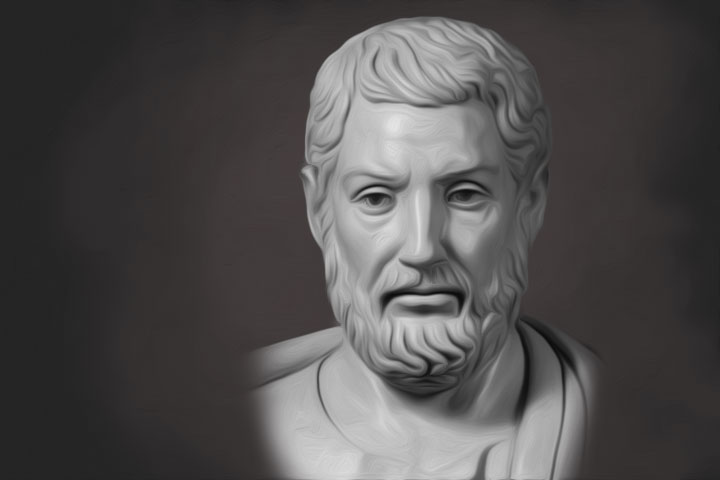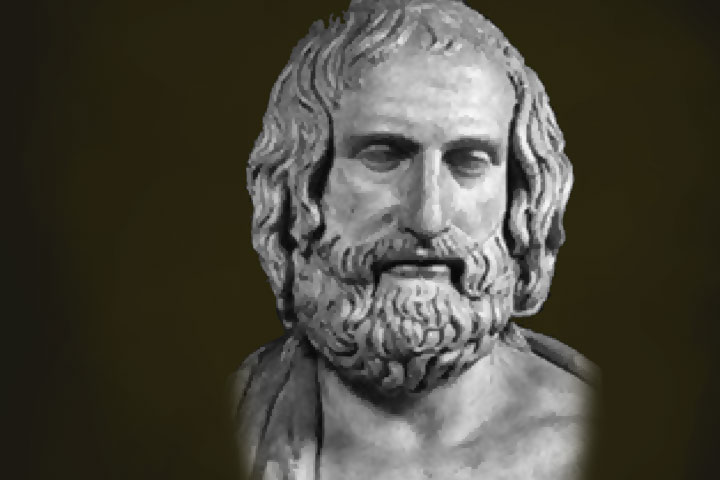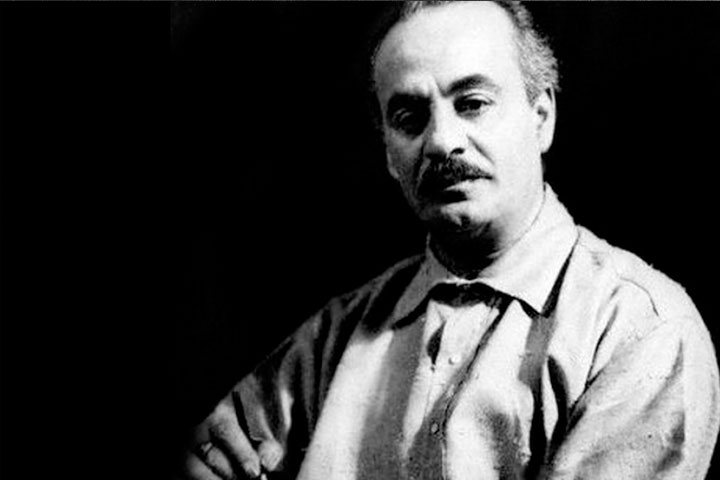
“There is nothing permanent except change,” said Heraclitus, over 2,500 years ago. Though Heraclitus, an ancient Greek thinker has faded into obscurity, he was the first Western teacher to seek explanations to human behaviour beyond the then prevalent physical theories while seeking answers in metaphysics and morality
The above words are a paradox, yet convey the absolute truth about the human life and our surroundings. Heraclitus wanted to prove that paradoxes or opposite forces, are essential for life. Yet, such opposites are part of a vital, universal balance and hence, two sides of the same coin. Unfazed by archaic technology and criticism by peers, Heraclitus expounded, the world is not governed by any dominant factor or element. Instead, the world, as we know it, is not to be identified with any particular substance, but rather with an ongoing process governed by a law of change. This intrinsic natural law also translates as a moral law for humans, he said.

Heraclitus was born around 535BC in Ephesus, a flourishing city in Ionia located in Asia Minor or modern day Efes, Turkey. The region was ruled by the Persians. Ephesus was close to another city, Miletus, which was renowned as a centre for learning, especially pre-Socratic thoughts.
Few details are available about Heraclitus’ life. According to ancient historian and chronicler Diogenes Laertius, known for writing biographies of famous thinkers, Heraclitus was the son of Herakon, a descendant of Androclus, the founder of a great Ionian dynasty of that period, which ruled the region.
Diogenes claims, Heraclitus, since childhood, bore a mournful demeanour and would be seen brooding alone in corners of his parental home or temples. Heraclitus was a brilliant and inquisitive student but contemptuous towards conventional studies. Diogenes states, Heraclitus as a boy would claim that he knew nothing. Later, he claimed to possess knowledge acquired by questioning himself. “Things that can be seen, heard and learned are what I prize the most,” Heraclitus would say.

Diogenes Laertius attempted to reconstruct Heraclitus’ life based on his teachings quoted by several later thinkers. He states, Heraclitus was awarded the title as a noble in Ephesus but declined it. He was also made one of the ‘rulers’ of the region but abdicated in favour of his brother since he found politics and governance frivolous. Instead, he spent long hours listening to teachings of contemporary thinkers of Miletus including Thales, Anaximander and Anaximenes. He also studied the theories of Pythagoras, the ancient Greek mathematician, Hesiod, an ancient verbal poet and the legendary writer, Homer.

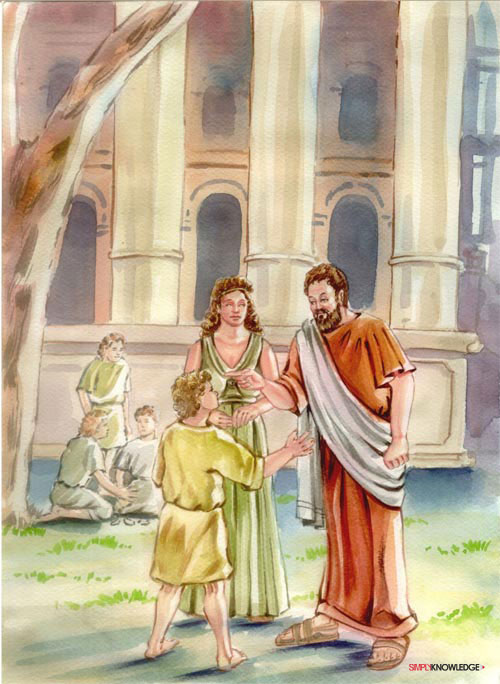
Several ancient and modern day psychologists have tried to analyse, though with little success, the thoughts of Heraclitus. As a youth, Heraclitus amused himself playing knucklebones- a primitive dice game- with other men of his age at the Temple of Artemis, despite being designated to a high rank in the ruling hierarchy. A noble reprimanded Heraclitus for puerility saying he should instead help draft a set of laws for the government. Heraclitus brushed away the noble saying: “Man is most nearly himself when he achieves the seriousness of a child at play.”
Historians and later thinkers also state that Heraclitus had deep contempt for Pythagoras, Hesiod and Homer and spared no effort to revile them publicly. He castigated Pythagoras and Hesiod in obnoxious terms, saying they lacked knowledge although they claimed to be learned. “Men who wish to know about the world must learn about it in its particular details,” he said disdainfully about these scholars.
Heraclitus also called for Homer and Archilochus - a renowned poet of an earlier era, to be flogged in public. He described people, especially his fellow Ephesians as a bunch of “greedy eunuchs” who deserved the harshest punishment for amassing wealth they possibly could never use during their lifetime. “No one that encounters prosperity does not also encounter danger,” he oft chastised his compatriots.
He despised tradition held sacred among Ionians and derided ceremonies for the dead saying: “Corpses are more fit to be thrown out than is dung.” Heraclitus’ reference to ‘corpses’ could possibly implied people who lacked knowledge and were propelled by avarice, and hence, useless to the society while dung had various uses.
Heraclitus held laws in low esteem and criticized them with alacrity. “Justice will overtake fabricators of lies and false witnesses,” he said, deriding man-made laws of the land.
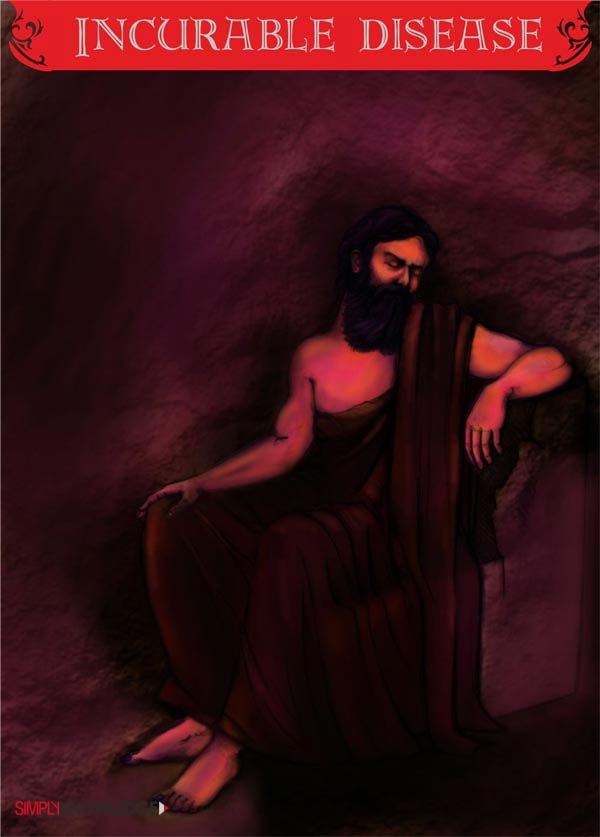
Heraclitus suffered from severe clinical depression or ‘Melancholia’. His facial expressions were of one in deep mental anguish and hence, earned the name “the mournful thinker” or “weeping philosopher”. Several artists, in their portraits and depictions of Heraclitus, portray him as sad and brooding figure, mostly clad in black robes.
As years passed, he withdrew from crowds and would wander away for long hours in nearby woods and hills, increasingly severing his ties with the society. His self isolation attained aberrant proportions when his retreats into isolation assumed a level of insanity: he subsisted by eating grass and plants in the forest, away from civilization.
Heraclitus, according to historian Diogenes Laertius, was afflicted with Oedema- a disease that causes fluids to accumulate either in specific parts or all over the body. Despite well-wishers trying to cure Heraclitus by offering him the best medical treatment available at the time, the disease progressed gradually. Heraclitus was suffering excruciating pain due to Oedema rendering his movements cumbersome.

Aged about 60 years, Heraclitus could no longer bear the intense mental and physical agony caused by Oedema. He decided to medicate himself. He concocted a poultice of dung and ground herbs and applied it all over his body. Heraclitus then proceeded to bask in sunlight. He believed the grotesque mixture to work by drying due to the heat, which in turn, would draw out the fluids accumulated in his body.
The experiment failed: Heraclitus, refusing to budge from scorching afternoon heat, he suffered sunstroke. Efforts to revive him failed. His mortal remains were interred at a public place in Ephesus.
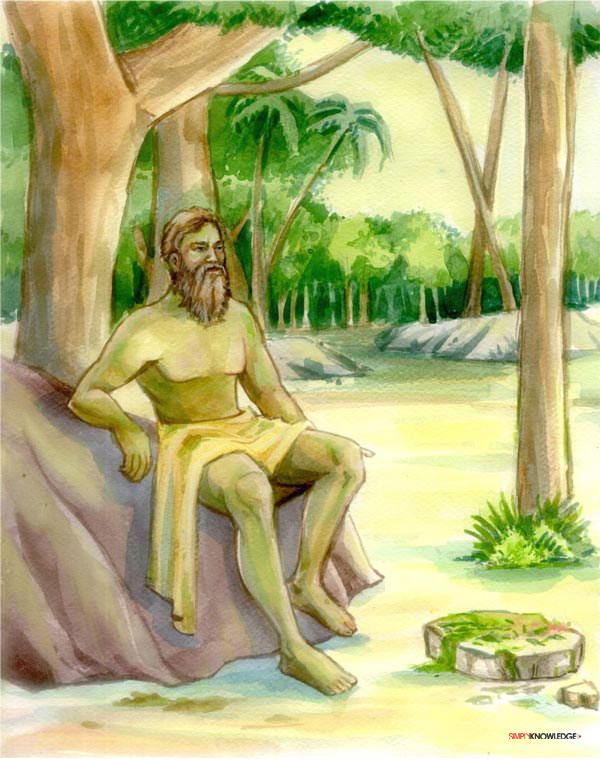

Historian Diogenes Laetrius credits Heraclitus with writing a single manuscript about his thoughts, which was stored at the Temple of Artemis but destroyed over the years due to neglect. From whatever fragments that survived, later thinkers and chroniclers tried to piece together Heraclitus’ teachings.
Based on accounts of historians and later thinkers, Heraclitus’ main contribution to psychology was his theory of knowledge- possibly the first ever attempt to gain insight into workings of the brain and the thought process.

Heraclius expounds that all human beings lack proper understanding. He explains that people listen without comprehending, see without perceiving and experience without learning resulting in futile actions. Heraclitus simplifies his teaching saying that most people somnambulate though life, oblivious to occurrences and hence are sans wisdom.
He lays emphasis on linguistics, saying, to comprehend the spoken word, one must understand the language. Those who do not know a particular language but feign knowing it are similar to barbarians.
Heraclitus derided “fools” or humans without knowledge who use a veneer to conceal their lack of wisdom. “Hide our ignorance as we will, an evening of wine soon reveals it,” he said, signifying that absence of wisdom can be quickly noticed when people get complacent and are off guard, similar to intoxicated people.

Heraclitus’ ethos revolves around an Oracle, namely Delphi, the most revered by Athenians. He says, the Oracle or deity never reveals or conceals the truth. Instead, the divine power communicates through encrypted messages using paradoxes, parallels and rhetoric. Hence, humans should have the capabilities to decipher these “signs” to know what is ordained. Humans, Heraclitus proposed, can learn immensely by solving puzzles since it stimulates their learning process and helps decode such divine messages.

Heraclitus was the first Western thinker whose axioms revolve around human values. He deftly used aphorisms to elucidate people on unchangeable facts of life using common examples. “It is hard to contend against one's heart's desire; for whatever it wishes to have it buys at the cost of soul,” said Heraclitus to portray the evils of fulfilling one’s desires while sacrificing conscience and morality.

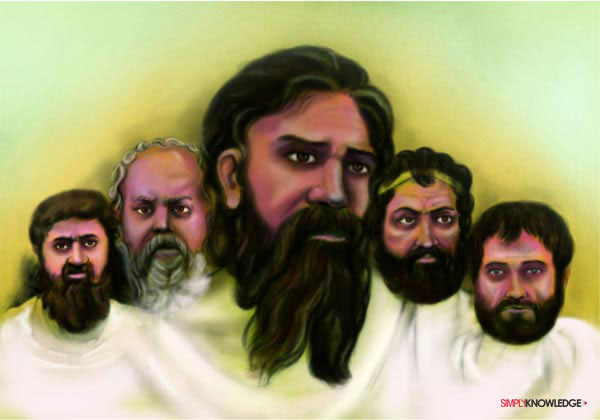
Though Heraclitus lived a desolate life and his only known work perished over the centuries, his teachings, through word of mouth, influenced several later thinkers. Socrates attained greatness since he expounded Heraclitus’ theory about wisdom. Heraclites also influenced the Zeno of Citium, the father of Stoicism, Plato, neo-Platonists and Aristotle. Whatever fragments of his works that remain through texts authored by other thinkers continue to be researched till date.
Next Biography








